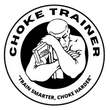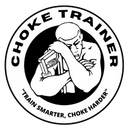Unlocking Peak Performance: How Nutrition Fuels Athletic Excellence
Athletic performance is often viewed as the result of rigorous training, natural talent, and mental resilience. While these elements are undeniably important, one essential factor often underestimated is nutrition. For athletes at any level, the food they consume serves as the foundation for their energy, endurance, recovery, and overall physical performance. Let’s explore how nutrition directly impacts athletic success and how making the right dietary choices can propel athletes toward their peak potential.
The Role of Nutrition in Athletic Performance
1. Fueling Energy Levels
Every movement requires energy, and for athletes, this energy demand is magnified. Carbohydrates are the primary energy source for high-intensity activities, as they are stored in the muscles as glycogen and readily converted to fuel. For endurance athletes or those in prolonged activities, fat becomes an essential secondary energy source. Proper intake of these macronutrients ensures that athletes have the stamina and strength to power through training sessions and competitions.
2. Enhancing Recovery and Repair
Intense exercise causes microscopic damage to muscle fibers, which is a natural part of the training process. Protein plays a pivotal role in repairing these muscles, making them stronger and more resilient. Additionally, key nutrients like omega-3 fatty acids and antioxidants (found in foods like salmon, berries, and leafy greens) help reduce inflammation and promote faster recovery, allowing athletes to train harder and more consistently.
3. **Improving Hydration and Performance
Improving Hydration and Performance
Hydration is often overlooked, yet it is critical for athletic performance. Even mild dehydration can lead to fatigue, reduced coordination, and decreased endurance. Water regulates body temperature, aids in nutrient transport, and ensures optimal muscle function. For high-intensity or prolonged activities, replacing electrolytes lost through sweat (such as sodium, potassium, and magnesium) is equally essential. Sports drinks, coconut water, or electrolyte tablets can help athletes maintain hydration and prevent cramping or energy dips.
Key Nutrients for Athletic Success
1. Carbohydrates
As the body’s preferred energy source, carbohydrates are vital for maintaining glycogen stores. Whole grains, fruits, sweet potatoes, and legumes are excellent options to fuel intense workouts and promote sustained energy.
2. Protein
Protein supports muscle repair and growth, making it crucial for strength athletes and endurance runners alike. High-quality protein sources like lean meats, eggs, dairy, tofu, and beans should be included in an athlete’s diet.
3. Fats
Healthy fats provide a long-lasting energy source and support hormonal health. Incorporating foods like avocados, nuts, seeds, and olive oil helps balance an athlete’s diet while providing anti-inflammatory benefits.
4. Micronutrients
Vitamins and minerals, though needed in smaller amounts, play significant roles in athletic performance. For instance:
• Iron boosts oxygen transport, crucial for endurance athletes.
• Calcium and Vitamin D support bone health and muscle contractions.
• Magnesium aids in energy production and muscle relaxation.
Timing Matters: Pre- and Post-Workout Nutrition
• Pre-Workout: Eating a balanced meal 2-3 hours before exercise provides the fuel needed for peak performance. A mix of carbohydrates and a small amount of protein can prevent fatigue and muscle breakdown.
• Post-Workout: Recovery begins immediately after exercise. A combination of protein and carbohydrates within 30-60 minutes helps replenish glycogen stores and repair muscle tissue effectively.
The Competitive Edge of Personalized Nutrition
Every athlete is unique, and their nutritional needs vary based on their sport, intensity of training, body composition, and personal goals. Consulting a sports nutritionist can help fine-tune dietary plans to optimize performance. Supplements, such as whey protein, creatine, or BCAAs, may also be recommended for specific performance enhancements but should always be used under professional guidance.
Final Thoughts
Nutrition is the cornerstone of athletic performance. The right diet not only powers athletes through training but also supports recovery, reduces the risk of injuries, and enhances overall well-being. By prioritizing balanced and nutrient-dense meals, athletes can push their limits, outperform their competition, and achieve long-term success.
Remember, you’re not just fueling your workouts—you’re fueling your potential. Start making mindful nutritional choices today and experience the transformative impact on your performance tomorrow.
Are you looking to optimize your athletic diet? Reach out for personalized nutrition plans and tips to fuel your success!

